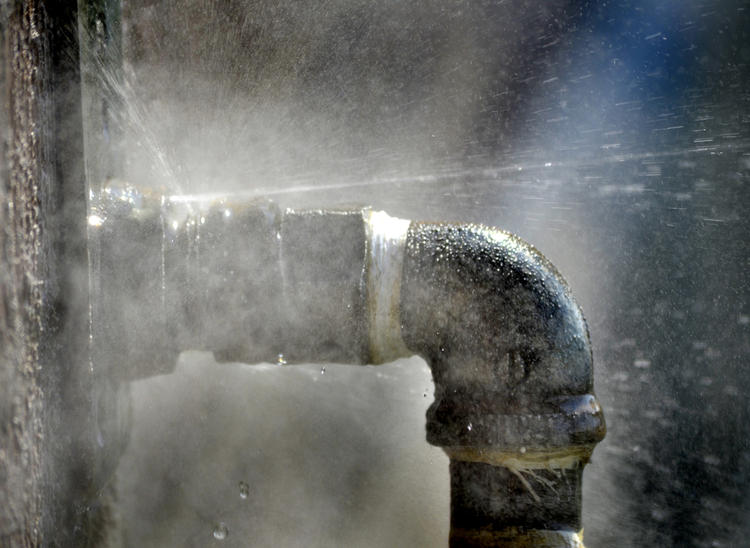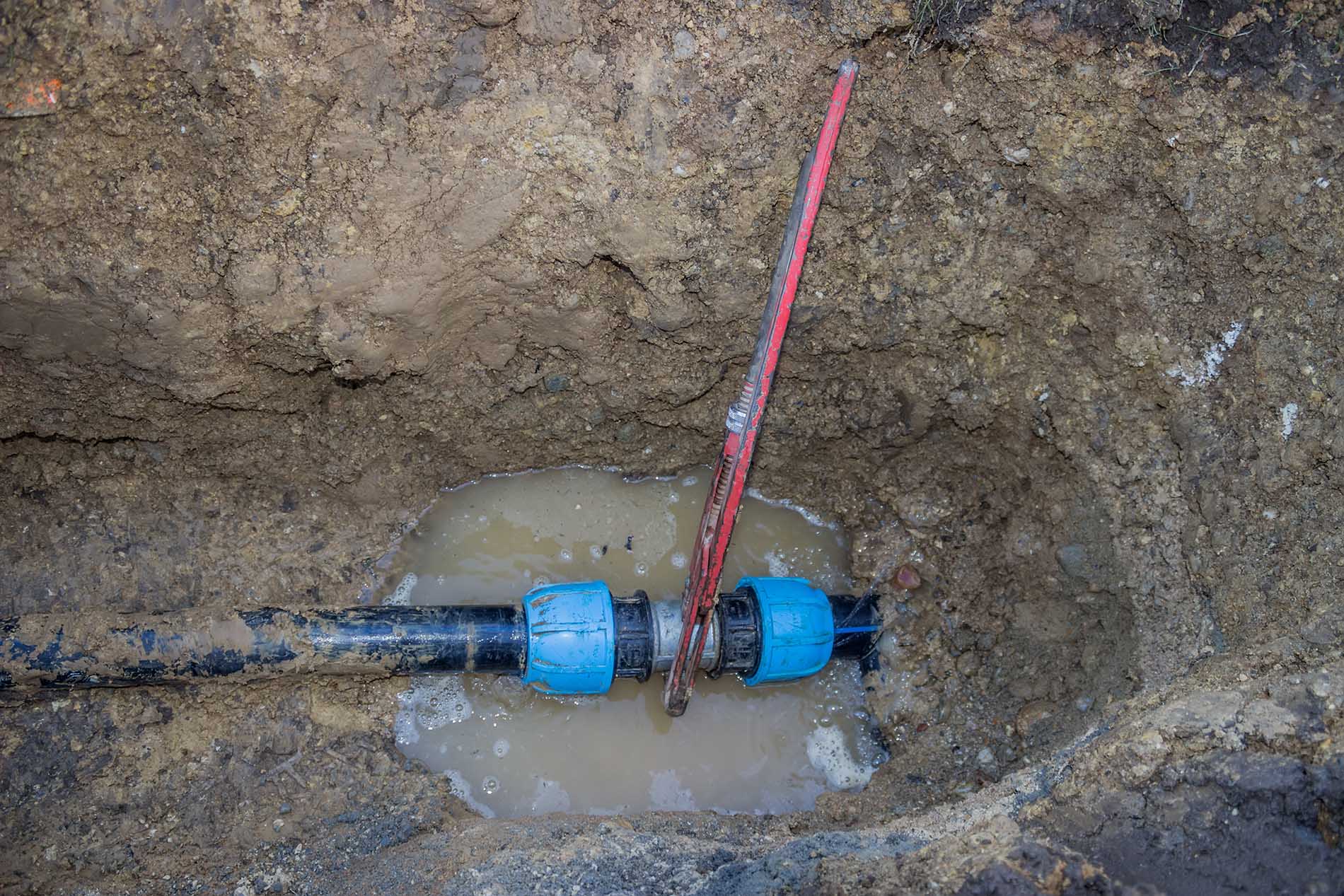5 Typical Water Leak Triggers
5 Typical Water Leak Triggers
Blog Article
We've noticed the article pertaining to Where to Find Water Leaks down the page on the net and felt it made sense to discuss it with you on this page.

"Be careful of little costs. A little leak will sink a great ship." - Benjamin Franklin.
He couldn't have been more right since water leaks in our homes result in a waste of resources, enhancing our water expenses. Although this boost may seem minimal at first, it can lead to significant expenditures that can damage your financial institution. In addition to a boost in costs, water leakages likewise cause unwanted natural growth, structural damage, and also electrical risks.
If you have a water leak isn't always simple due to being incapable to see many of the pipework in your home, figuring out. If you have had a boost in your water costs recently, discovered water discolorations on ceilings as well as wall surfaces, smelt poor odor, and so on. You might intend to consider requesting plumbing solutions to get it had a look at.
There are several causes of water leaks, and we have assembled the common factors listed below. Examine to see if you have had relevant problems in your house just recently.
Clogged drains pipes
Food fragments, dust, and also grease can cause stopped up drains pipes and also obstruct the passage of water in and out of your sink. If undealt with, increased stress within the seamless gutters can finish and create an overflow up breaking or bursting pipelines. To stay clear of clogged up drains pipes in your home, we suggest you to avoid putting fragments away as well as routine cleansing of sinks.
High water stress
You saw your home water stress is greater than common but then, why should you care? It's out of your control.
It would be best if you cared because your average water stress ought to be 60 Psi (per square inch) and also although your residence's plumbing system is created to hold up against 80 Psi. An increase in water pressure can place a strain on your home pipelines and bring about cracks, or even worse, burst pipes. Get in touch with a specialist about managing it if you ever before see that your home water pressure is greater than common.
Corrosion
As your pipework gets older, it gets weak and extra susceptible to rust after the constant passage of water through them, which can eat away at pipes as well as trigger cracks. A visible indicator of deterioration in your house plumbing system is discoloration as well as although this may be difficult to find because of a lot of pipelines hidden away. We encourage doing a frequent checkup every couple of years and also change pipes once they are old to guarantee a sound plumbing system
Weakened pipe joints
Pipeline joints are the components of our plumbing system where the pipes attach. It is vital to keep in mind that also though pipes are designed to withstand stress as well as last for a while, they weren't created to last permanently; therefore, they would certainly deteriorate over time. A common sign of damaged pipe joints is too much noise from faucets.
Busted seals
An additional reason for water leakages in residences is damaged seals of house appliances that make use of water, e.g., a dishwashing machine. When such appliances are installed, seals are mounted around water adapters for simple flow of water with the device. For this reason, a broken seal can trigger leakage of water when being used.
With little or no knowledge of plumbing, understanding your residence's plumbing system enough to repair a few of these issues (without consequence) can be a headache. Contact plumbing specialists in Pittsburgh, Providence, Rochester, and environ today, as well as they'll make those issues go away.
He could not have been more right because water leaks in our homes result in a waste of resources, raising our water costs. If you have had a boost in your water bills recently, saw water spots on ceilings and also wall surfaces, smelt lousy odor, etc. An increase in water stress can place a strain on your house pipes as well as lead to splits, or worse, burst pipes. One more reason of water leaks in houses is damaged seals of residence appliances that use water, e.g., a dish washer. When such home appliances are mounted, seals are mounted around water adapters for simple flow of water via the equipment.
5 TIPS IN DETECTING A WATER LEAK IN YOUR HOUSE
Water leaks can be hard to find in your home, yet they can be so common. We rely on water every day in our home, which is why a leak can cause big problems. By detecting them early, you can save money and further damage, getting the problem fixed as soon as possible. Here are 5 tips to help you detect a water leak in your home, so you can contact a plumber straight away and get the issue sorted.
Check your water meter
Many people underestimate the value of the water meter in their home. It can be one of the best ways to tell if you have a leak early on, so you can get on top of it before issues start arising. Start by turning off all the water in your home: taps, washing machine, dishwasher, etc. Now take a look at the meter – if it’s still changing with everything turned off, it’s likely you have a fast-flowing leak that you need to get on top of straight away. If nothing changes, then leave your meter for an hour or two and come back to it. Did it change in this time? It’s likely you have a slower leak, which isn’t as urgent but still handy to get fixed so it doesn’t become a bigger problem.
Keep an eye on your bill
Another good way to detect a leak in your home is by keeping an eye on your water bill. It helps if you have a past bill from the same period of time. You can compare like for like and determine whether your water usage has increased significantly. If it has, there may be a leak in your system that you haven’t picked up before. A professional plumber can check through all of your pipes and determine where it is coming from.
Look for damage
If you have a leak inside your home, you will notice damage over time. Take a look at your showers and bathtubs and note whether any of the tiles surrounding the area seem to be discoloured or damaged in any way. There may be water stains, mould or peeling material that has resulted from a build up of moisture over time. Make sure you take a look under sinks at the back of cupboards that don’t get accessed regularly. This is where damage can go unnoticed and build up over periods of time.

I ran across that piece of writing about How to Find and Prevent Water Leaks in Your Home when perusing the web. Sharing is nice. Who knows, you will be helping someone out. I treasure reading our article about Where to Find Water Leaks.
Stress-free fix? Contact. Report this page